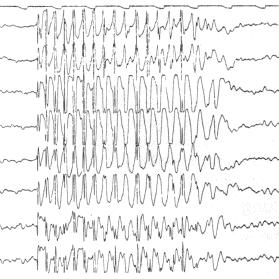 Montreal, March 23, 2011 – Researchers at Concordia University have pioneered a computer-based method to detect epileptic seizures as they occur – a new technique that may open a window on the brain's electrical activity. Their paper, "A Novel Morphology-Based Classifier for Automatic Detection of Epileptic Seizures," presented at the annual meeting of the Engineering in Medicine and Biology Society, documents the very successful application of this new seizure-detection method.
Montreal, March 23, 2011 – Researchers at Concordia University have pioneered a computer-based method to detect epileptic seizures as they occur – a new technique that may open a window on the brain's electrical activity. Their paper, "A Novel Morphology-Based Classifier for Automatic Detection of Epileptic Seizures," presented at the annual meeting of the Engineering in Medicine and Biology Society, documents the very successful application of this new seizure-detection method.An epileptic seizure, which is caused by disruptions in the normal electrical activity of the brain, can produce a range of symptoms including convulsions and unconsciousness. To learn more about the timing and nature of seizures, the electrical activity of patients' brains is often recorded using electroencephalograms (EEGs). At the moment, however, epilepsy experts must review these recordings manually – a time-consuming process.
However, seizures have certain recognizable characteristics. They occur when neurons fire in a synchronous or rhythmic manner. As seizures progress, the EEG signals have very strong transitions. Seen on an EEG recording, the waves of electrical activity tend to be spike-like.
The Concordia team, led by PhD candidate and lead author Rajeev Yadav, devised an algorithm to check the sharpness of the electrical signals on the EEG recordings as measured by their angle or slope. A series of sharp signals indicate a seizure.
This approach proved extremely successful. In the study of EEG recordings of seven patients, the new method detected every seizure while scoring an extremely low rate of false positives. Results are far better than those obtained with existing methods.
Read the full article here.
No comments:
Post a Comment